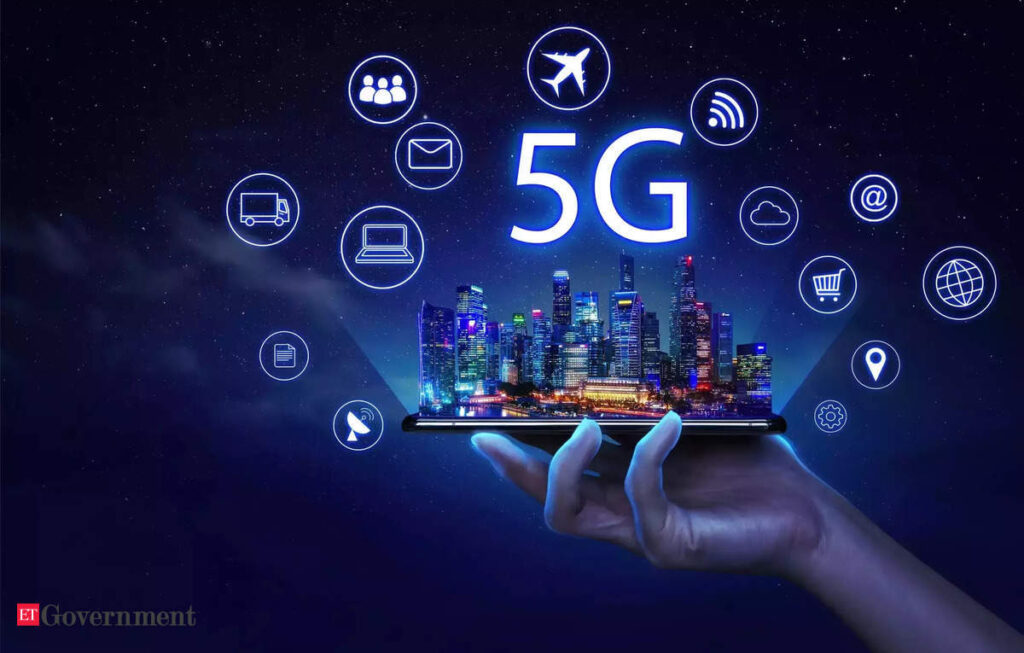5G technology is the fifth generation of wireless communication that promises faster speeds, lower latency, and greater connectivity. It enables seamless communication between devices, revolutionizing how we interact with technology. From smartphones to smart cities, 5G is setting the stage for a connected future.
Imagine downloading a full movie in seconds or experiencing virtual reality like it’s real life—this is the power of 5G. But it’s not just about speed; it’s about transforming industries. Healthcare, transportation, and entertainment are being reimagined with 5G at the core.
With its ability to handle more devices and massive data, 5G is making concepts like autonomous vehicles and smart homes a reality. This technology is paving the way for innovations like remote surgery and enhanced AI-driven tools. The future powered by 5G is already here!
What Is 5G Technology and How Does It Work?
5G is the latest and fastest mobile network technology. It provides high-speed internet and connects many devices at the same time. It reduces delays, making communication smooth and quick.
5G works by using advanced antennas and high-frequency waves. These signals send data faster than older networks. It supports smart devices, apps, and new technology.
The Benefits of 5G: Speed, Reliability, and More
5G technology is much faster than older networks. It allows you to download movies, stream videos, and play games without delays. It connects many devices at once. This makes it reliable for busy places like stadiums or cities.
5G also helps businesses and industries. It improves smart devices, remote work, and even healthcare. Driverless cars and smart cities use 5G to work better. This technology makes life easier and helps people stay connected everywhere.
How 5G Is Transforming Industries Around the World
5G is changing industries with faster connections and smart solutions. In healthcare, doctors use 5G for remote surgeries and real-time patient monitoring. Factories use it for robots and automation. It also helps transportation with self-driving cars and safer traffic systems.
Entertainment and gaming are better with 5G’s speed. Movies download in seconds, and virtual reality is smoother. Farmers use 5G to track crops and animals. This technology supports smart cities with connected lights and sensors. 5G is helping the world grow and improve.
The Impact of 5G on Everyday Life
5G technology is changing everyday life. It makes internet speeds much faster. People can download movies or games in seconds. Online classes and video calls are smoother. It helps smart home devices work better.
5G also supports new technology like self-driving cars and remote healthcare. It connects many devices easily. This makes life more convenient and efficient.
Challenges and Limitations of 5G Technology
5G technology has many advantages, but it also has challenges. Building 5G networks is very expensive and takes time. Some areas, especially rural places, do not have enough coverage yet. It also needs many antennas, which can be hard to install. These factors slow down its growth in some regions.
Another challenge is that 5G uses more power than older networks. This makes it costly for companies to maintain. There are also concerns about security because 5G connects many devices. Despite these issues, experts believe that 5G will improve over time and solve these problems for a better future.
Future Trends and Innovations Driven by 5G
5G technology will drive many future innovations. It will improve self-driving cars, making roads safer. Smart cities will use 5G to control traffic and save energy. Factories will use robots that work faster and smarter.
Augmented reality and virtual reality will become more advanced with 5G. These tools will help in gaming, education, and healthcare. 5G will also connect more devices, creating a better Internet of Things (IoT) experience.
What is 5G technology?
5G is the fifth generation of mobile networks, offering faster speeds, lower latency, and more reliable connections compared to previous generations.
How fast is 5G compared to 4G?
5G can be up to 100 times faster than 4G, allowing for quicker downloads, smoother streaming, and real-time data transfers.
What industries will benefit from 5G?
Industries like healthcare, transportation, entertainment, and manufacturing will benefit from 5G’s faster speeds and ability to connect more devices.
When will 5G be available everywhere?
5G is already available in many cities, but full global coverage is expected to expand over the next few years.
Are there any health risks from 5G?
Current research suggests 5G technology is safe. Regulatory bodies like the World Health Organization monitor and ensure that it meets safety standards.
FAQ’s
What is 5G technology?
5G is the fifth generation of mobile networks, offering faster speeds, lower latency, and more reliable connections compared to previous generations.
How fast is 5G compared to 4G?
5G can be up to 100 times faster than 4G, allowing for quicker downloads, smoother streaming, and real-time data transfers.
What industries will benefit from 5G?
Industries like healthcare, transportation, entertainment, and manufacturing will benefit from 5G’s faster speeds and ability to connect more devices.
When will 5G be available everywhere?
5G is already available in many cities, but full global coverage is expected to expand over the next few years.
Are there any health risks from 5G?
Current research suggests 5G technology is safe. Regulatory bodies like the World Health Organization monitor and ensure that it meets safety standards.
Conclusion
5G technology represents a significant leap forward in mobile networks, offering faster speeds, lower latency, and improved connectivity. Its ability to handle more devices simultaneously will revolutionize industries and create smarter, more efficient solutions in everyday life. As 5G becomes more widespread, we can expect a surge in innovations that will enhance healthcare, transportation, education, and entertainment.
While there are challenges, such as infrastructure development and coverage expansion, the potential of 5G to change the way we live and work is undeniable. As the technology continues to grow, it will undoubtedly pave the way for a future full of exciting possibilities, making the world more connected than ever before.

